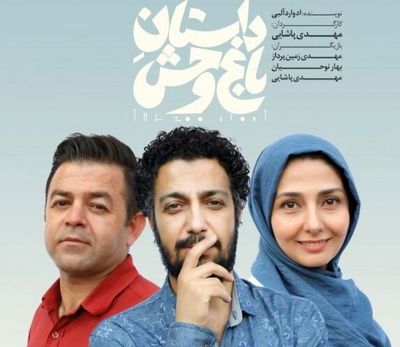Mehdi Pashai was the director of the play, which was staged based on a Persian translation by Elham Faqih.
Mehdi Zaminpardaz, Bahar Nuhian and Pashai were members of the cast for the play, which was scheduled to remain on stage until August 4, however, its other performances were canceled due to a new wave of COVID-19.
The one-act play was written in 1958 and completed in just three weeks. It explores themes of isolation, loneliness, miscommunication as anathematization, social disparity and dehumanization in a materialistic world.
This play concerns two characters, Peter and Jerry, who meet on a park bench in New York City’s Central Park. Peter is a wealthy publishing executive with a wife, two daughters, two cats and two parakeets.
Jerry is an isolated and disheartened man, desperate to have a meaningful conversation with another human being. He intrudes on Peter’s peaceful state by interrogating him and forcing him to listen to stories about his life and the reason behind his visit to the zoo.
The elements of ironic humor and unrelenting dramatic suspense are brought to a climax when Jerry brings his victim down to his own savage level.
Eventually, Peter has had enough of his strange companion and tries to leave. Jerry begins pushing Peter off the bench and challenges him to fight for his territory. Unexpectedly, Jerry pulls a knife on Peter, and then drops it as if inviting Peter to grab it. When Peter holds the knife defensively, Jerry charges him and impales himself on the knife.
Today, professional theater companies can produce “The Zoo Story” either as a part of “Edward Albee’s at Home at the Zoo” (originally titled “Peter and Jerry”), or as a standalone play.
Its prequel, “Homelife”, written in 2004, however, can only be produced as a part of “Edward Albee’s at Home at the Zoo”.
Source:Tehran Times

